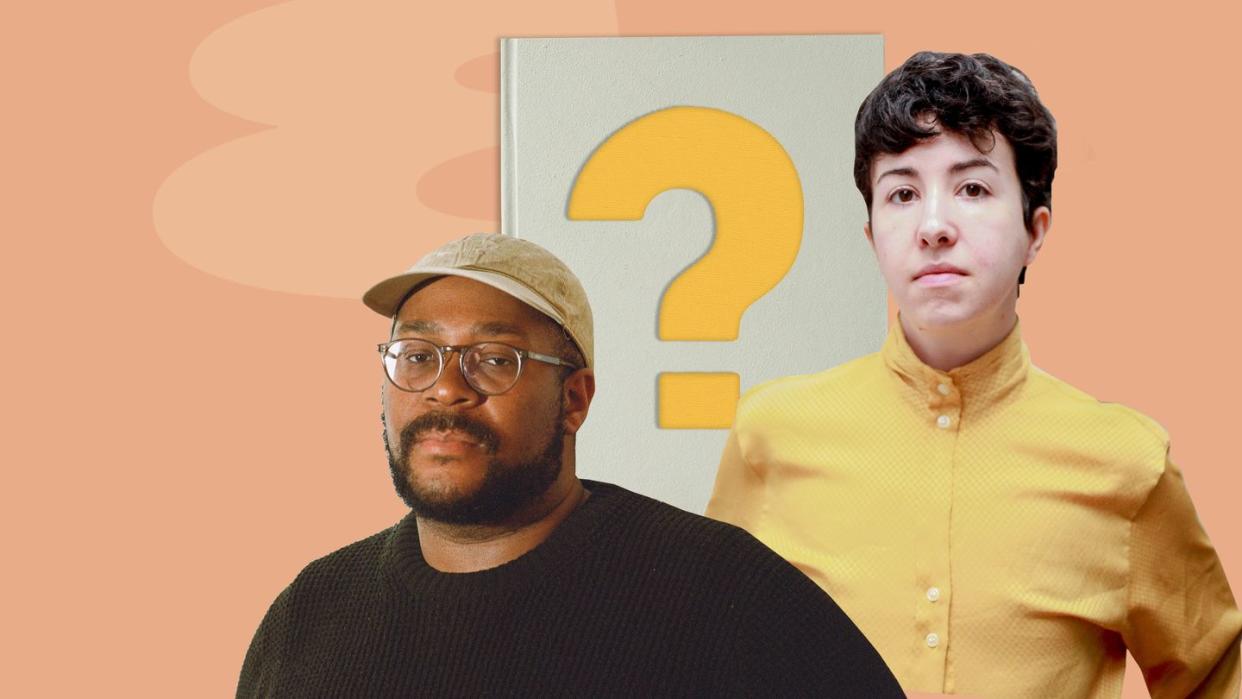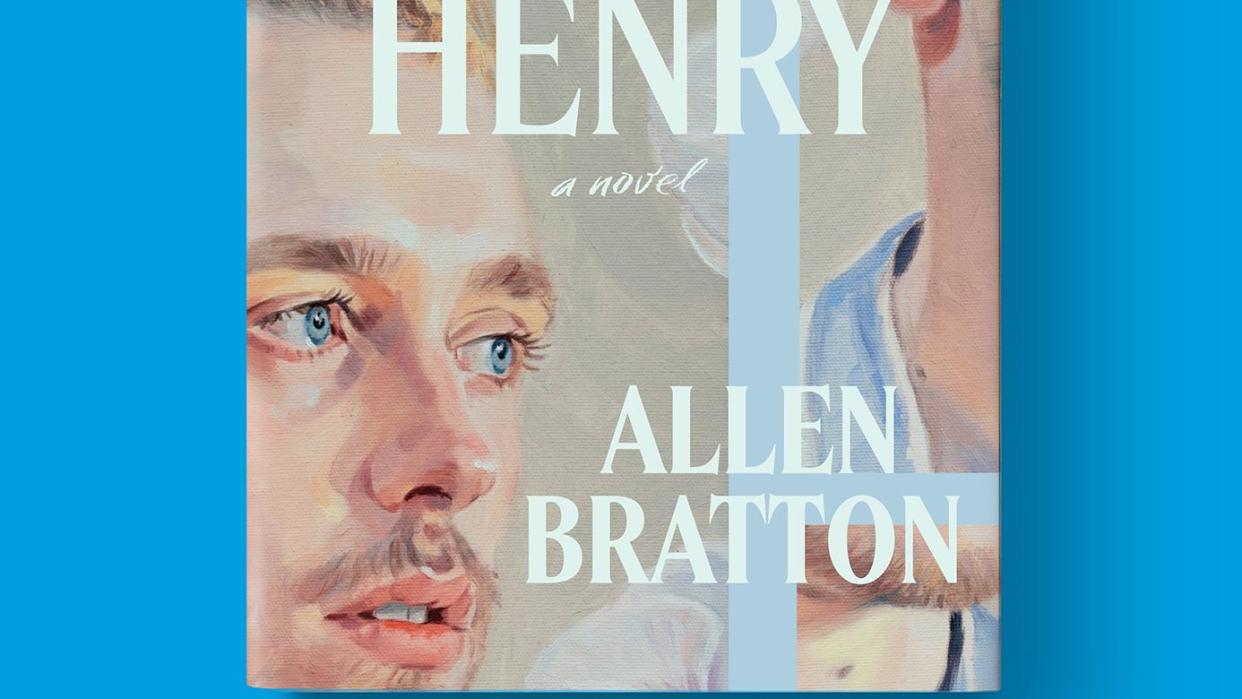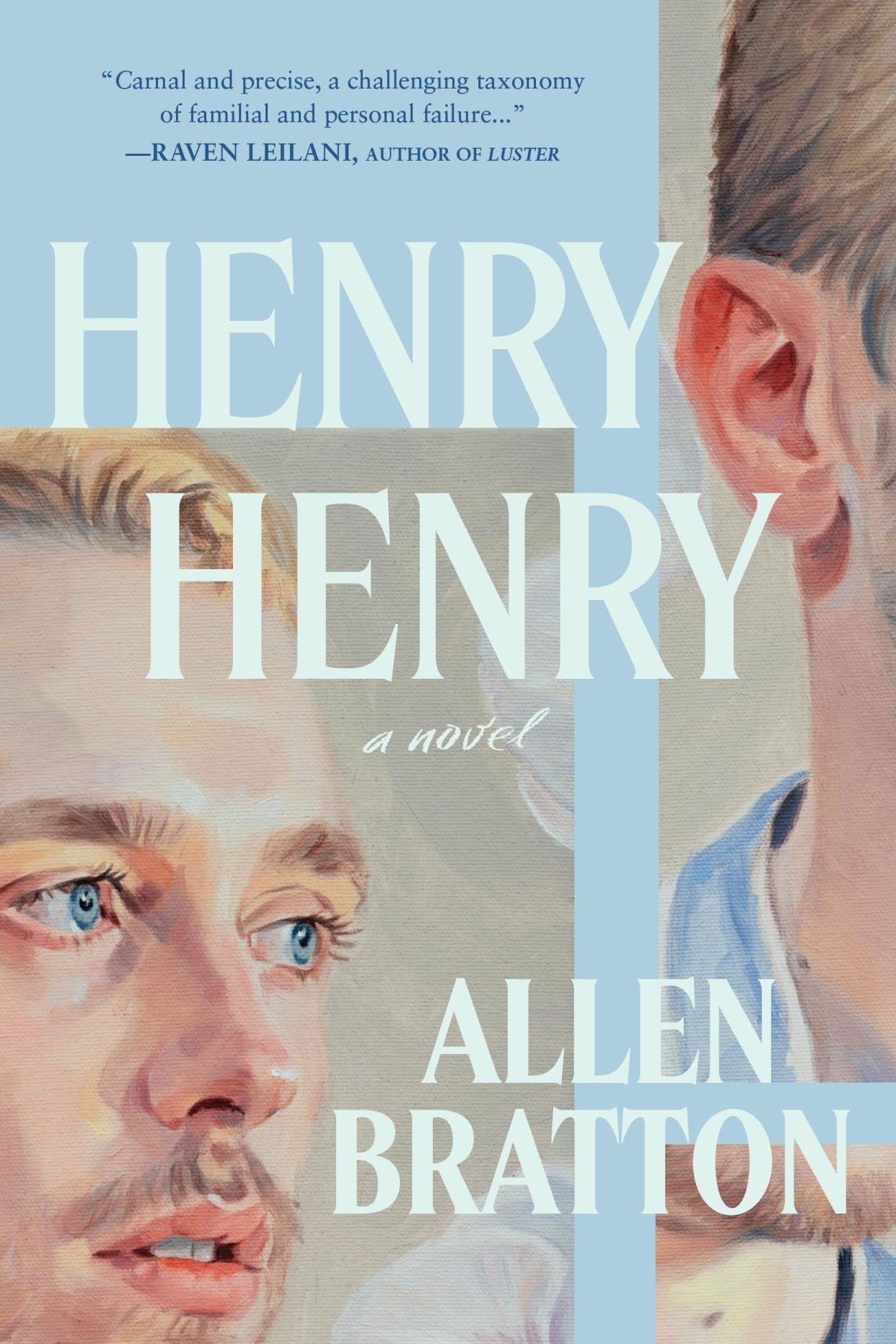A Queer Take on Shakespeare That's Perfect for History Nerds

"Hearst Magazines and Yahoo may earn commission or revenue on some items through these links."
In the summer of 2022, I became an acquiring editor for Unnamed Press, a wonderful independent publisher based in Los Angeles. This marked a real dream come true—I’d get to work with cool, smart people and acquire and edit a list of books. Among the first batch of manuscripts I received was a debut novel called Henry Henry by a young author named Allen Bratton. I confess that I didn’t really read the pitch email. I just printed out the manuscript and read it in my bathtub. The only time I stopped during the first two-hundred pages was to let more hot water into the tub.
Henry Henry is a reworking of the Henriad, the set of Shakespearean history plays dealing with the fates and fortunes of the final Plantagenet King Richard II and the first Lancastrians Henry IV and Henry V. They are plays about family dysfunction and the relationship between the self and authority, between society and the individual, duty and care, responsibility and vice. Bratton fondly describes them as “the daddy issue plays.” His understanding of the source material doesn’t manifest as a tedious piety, but rather as a wonderful sense of play and wit. “I wanted to put Hal, Henry, Hotspur, etc into this world where they’re defined by their ancestry but can’t actually do any of the things their ancestors were renowned for doing—they can’t depose the king, or lead an army, or order their enemies to be executed,” Bratton told me. “They have to ride the bus and go to the supermarket and do something about the squirrels living in the attic.”
Expanding on that, he said, “These conflicts that might have seemed heroic if played out in a medieval setting are suddenly pathetic and absurd and unglamorous in a way that really delights me. I prefer embarrassments and failures to glorious paragons of chivalry.”

In Bratton’s novel, Hal Lancaster is a young man at odd ends despite his privileged upbringing among the literal aristocracy. A typically Hal sequence of events finds him cutting lines of coke in pub bathrooms, then praying for absolution at mass, only to vomit after taking the host. The novel follows him over a span of about a year as he grapples with complicated, painful legacies and just maybe lets himself fall in love. Hal Lancaster is that rare thing in literary fiction: a genuine character, perhaps one of the few true characters to emerge from this new generation of queer literature. I’d put him right there next to Maurice, Sebastian Flyte, Giovanni, and Mitko. He has a body. He has a life. You remember him when he’s gone.
Bratton also has this great read on Hal as a gay disaster: “It’s funny because Shakespeare’s Prince Hal is, I think, one of the progenitors of the modern Gay Disaster,” he said. “He drinks too much; he plays stupid, mean pranks; he’s torn between his daddy and his disappointed father. But Shakespeare’s Hal is generally seen as a lovable scamp whose redemption is inevitable. I found myself trying to play with the sympathies of my imaginary audience, taking Hal back and forth very rapidly between the roles of victim and perpetrator. It mirrors the way Hal uses the people around him to play with his own sense of self—he has this little dance he does that’s like, ‘Do you hate me now? How about now? How about now? Ahh, but don’t you love me really.’”

barnesandnoble.com
$28.00
Kris KnightHenry Henry is a novel for the history nerds and the Shakespeare geeks. It brims with characters from history and the plays—there’s Poins, Falstaff, Percy (you will simply die when you see what Bratton does with the famous arrow), the Woodstocks! Joan of Navarre! But it is also a novel for anyone who has ever felt conflicted about their role in their family, their country, the world. Which is to say that it’s a book for anyone who’s ever felt lonely or unsure. I asked Bratton how he’d come to write the book, and he said, “Because I wanted to read it and knew nobody else was going to write it. I thought that if I waited for someone else to do it, I might be waiting a long time.”
I felt very much the same sense of urgency when I first read Henry Henry, that this book needed to be read right now by as many people as possible. In many ways, this is why I became an editor in the first place: to introduce readers to their new favorite writer.
You Might Also Like
